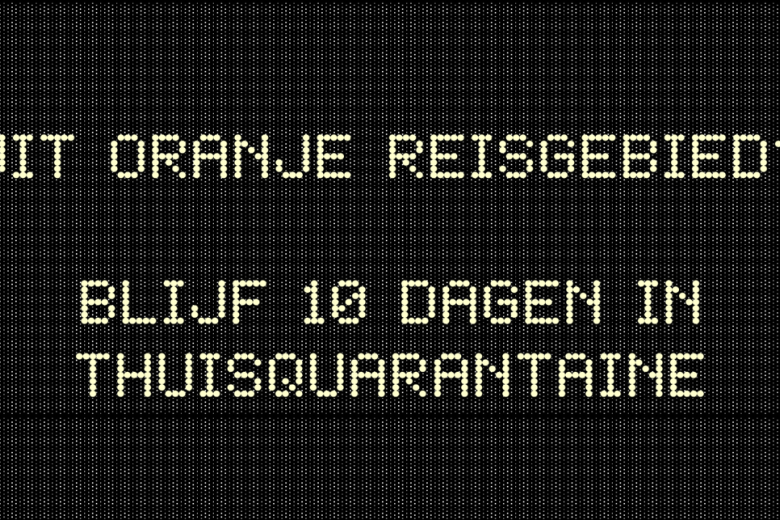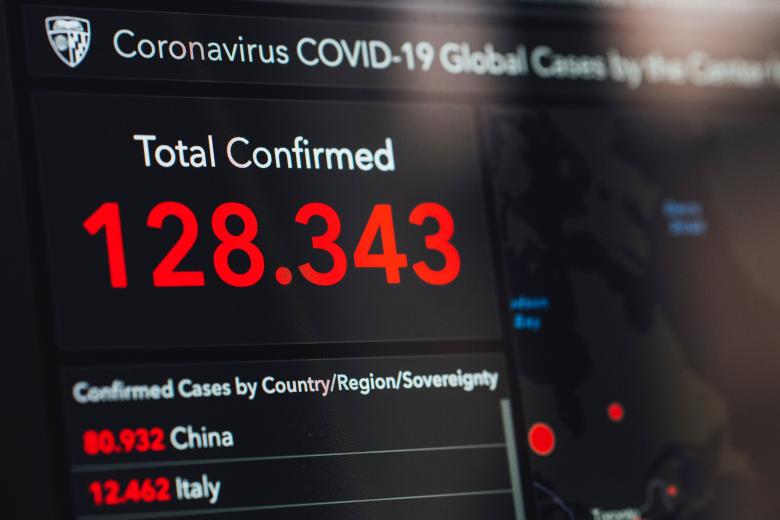Corona-creativity-boost or corona-energy-drain?
Creativity needed more than ever in the creative industry
The Corona-crisis and the lockdown hits severely, and particularly the cultural and creative industries. Already a traditionally precarious industry not having deep pockets, COVID‑19 knocks out most core activities of the sector. Concerts, expositions, performances, teaching activities… they all have human interaction and social gathering at its core. The whole ecosystem of the sector is at risk. And all those contributing to make the sector alive are without income. From small local initiatives to big international events, they are cancelled for an indeterminate period. How is this dealt with?
The undermining threat has not gone unnoticed by national governments. Also on the European level there are various sector-specific initiatives unfolding. Yet, the bridging factor of culture is sadly lacking in Corona-times. There are bizarre differences between how national governments react to these ‘special’ times. Cultural workers – but also other persons having several jobs - are asked to juggle with advanced organization skills. Even more so when they are working internationally.
The Dutch Minister of Education, Culture and Science, Ingrid van Engelshoven, introduced various countervailing measures to support the cultural sector. They are generic measures and mainly focused on preserving the ecosystem in the industry. Yet, the short-term relief measures do not discuss compensation for cultural workers specifically. Most work engagements in the cultural sector are on a freelancer basis (ZZP). And well, in case of such a force majeure, there is no breach of contract, so no compensation must be paid. But this also means that cultural workers fall under the general supporting rules applied to entrepreneurs. They may request for compensation to repair the damage caused, the so-called Tegemoetkoming schade COVID-19 (TOGS). And well, if shit hits the fan, there is still the final safety net of monthly social assistance: tijdelijke overbruggingsregeling voor zelfstandig ondernemers (TOZO), that is said to be provided faster and reinforced.
Sure, the social safety net and the one-off payment of €4,000 is a great gesture and can pacify urgent trouble spots. It ignores though that these ‘entrepreneurs’ will face a much longer lockdown in practice. The cultural life will re-launch slower, if still in place. Also, it overlooks the specific ‘hybrid’ work environment cultural workers are confronted with. A person can perform as a freelancer, being part-time engaged as teacher in a municipal school or private entity, etc. Something that minister Van Engelshoven is aware of, as appears in this recent interview on 14 March 2020. Also a core issue in last week’s plea by the Raad voor Cultuur sent to the Dutch Prime Minister Mark Rutte.
A different sound can be heard in the neighbouring countries which do not follow this one-size-fits-all approach.
Belgium seems to follow a more differentiated approach. Depending on the capacity of work - be it as an employee, as a self-employed person or as a civil servant – the Belgian government proposes several possibilities for income replacement. In principle, temporary interruption of the employment contract – and now in Corona-times also in case of cancellation of the employment contract - workers can apply for temporary unemployment benefits. This means that also cultural workers who are freelancing in Belgium or combining several jobs, are in principle entitled to these temporary Corona unemployment benefits. All be it that they face a challenging puzzle to solve for those having several jobs. There is the risk that some will fall between stools. For example, when an assignment is cancelled, and an employment contract has not yet been signed (common in practice), cultural workers cannot fall back on temporary unemployment or other compensations. If they are neither entitled to regular unemployment benefits (because they might not have worked enough as an employee in the past), these workers will end up empty-handed. Not favourable indeed. This has led to diverse initiatives from individual set-up crowdfunding projects to interest groups of the sector, such as the solidarity-based-project Plan Corona.
A generous gesture towards the cultural sector that hasn’t been followed yet is the approach applied in Germany. The German government stated clearly that the ‘cultural and creative industries need massive support.’ And so they do. All Bundesländer have put special measurements for the cultural sector into place.
Knowing that the cultural sector is per definition based on social interaction and knows a high mobility across borders, it is striking to see that that the transnational aspect is barely mentioned. Cultural workers are working in various places at the same time, such as performing, teaching, developing new productions… not seldom across borders. When a person works in Belgium and Germany, could (s)he requests for temporary unemployment benefits in both countries? And what if an international concert tour passing the cities of Berlin, Paris and London is cancelled? Can the people involved request for compensation in all these countries? (See here for a general overview of measures proposed in Belgium, Germany and the Netherlands). Let’s suppose that a cultural worker can request for compensation by all different organizers: Are these to be deducted from each other, or not? Are there taxes to be paid, and where? Because artists (and sports(wo)men) often fall under special tax regimes and must pay taxes where they perform.
Though, the first awareness on cross-border issues has come through. the Dutch government announced that the TOZO shall also apply to self-employed persons who live in the Netherlands while having their business abroad or vice versa. Still, many questions and lacking answers. For the time being, some might be lucky, but most likely many more will be (so far) left out. One thing is for sure, cultural workers have a tough nut to crack figuring out whether or not they have a right to the exceptional support in these Corona-times.
Written by Eva van Ooij, LL.M., Ph.D. researcher at Institute for Transnational and Euregional cross border cooperation and Mobility / ITEM and Department of International and European Law at Maastricht University (eva.vanooij@maastrichtuniversity.nl)
ITEM monitors the current impact of the Corona crisis on the border regions. Go to the ITEM Cross-border portal if you wish to stay informed.
-
Quarantine exception insufficient for border region
Continued disproportionate impact on daily life in the border region
With the circulation of the Coronavirus, governments are trying to restrict the movement of people. Staying at home and limiting unnecessary travel and visits is a frequently used and successful recipe against the flare-ups of...

-
Three countries, three ways of counting?
Comparing figures on corona infections and mortality can be misleading
The number of people dying in Belgium from the effects of the Coronavirus (COVID-19) is higher than in neighbouring countries. This high mortality rate makes it seem as if Belgium is not doing as well as its neighbours. The...
